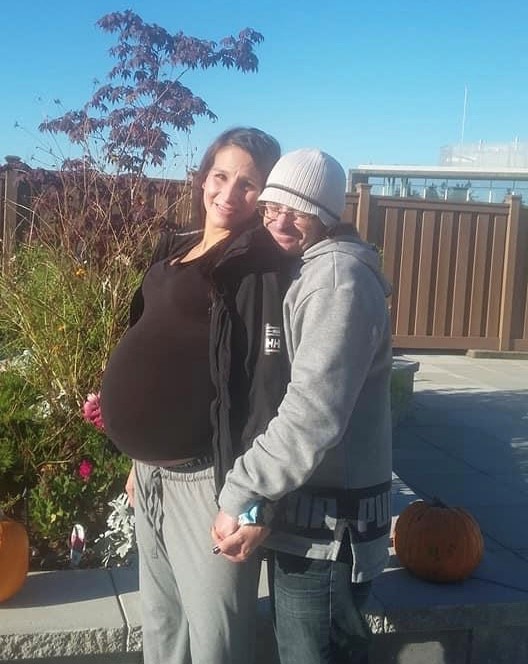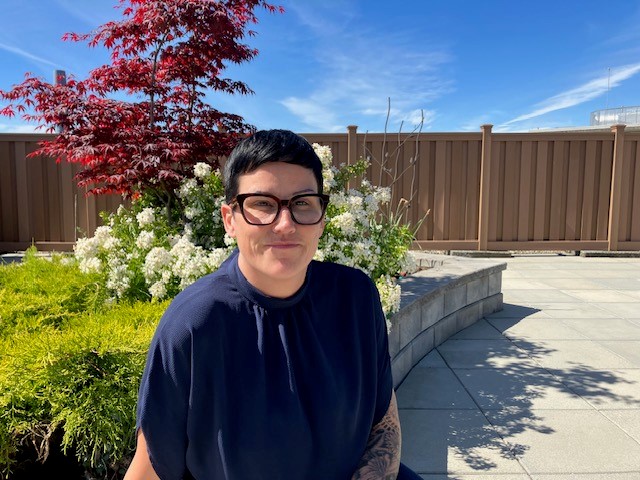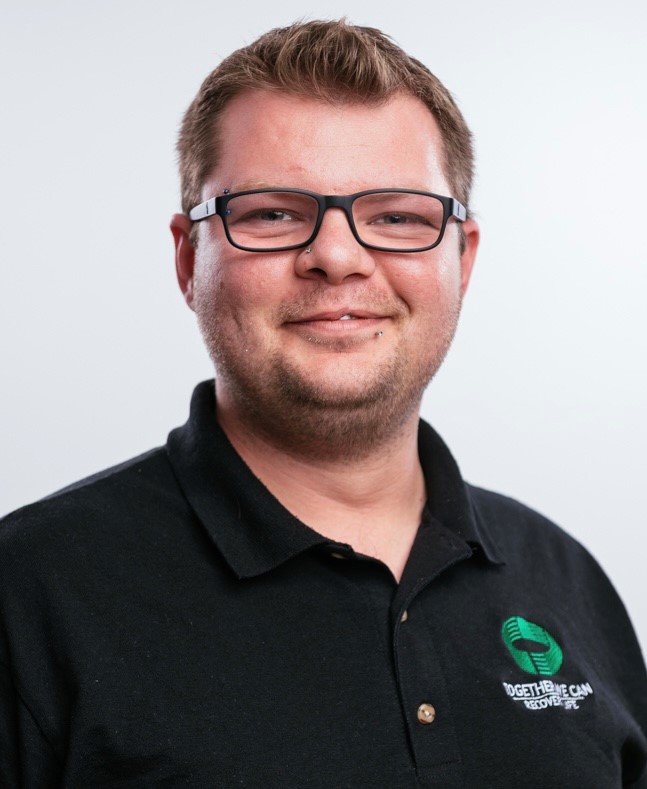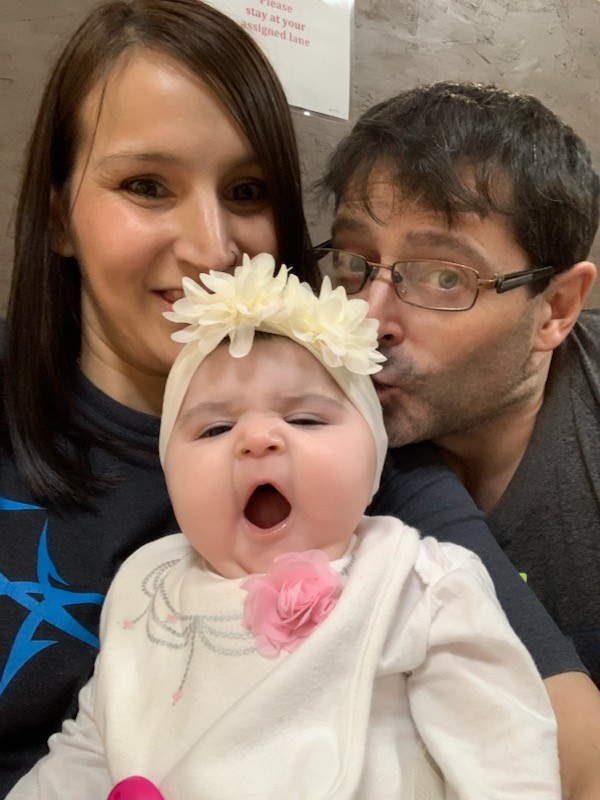Jean-Pol thought of himself as a lost cause.
 He’d tried to get help for his substance use so many times, he’d given up hope of ever being able to stop. But that was before he found support through BC Women’s Hospital + Health Centre’s Families in Recovery (FIR) program and Together We Can (TWC), which provides substance-use treatment for the partners of FIR patients, funded through the Provincial Health Services Authority.
He’d tried to get help for his substance use so many times, he’d given up hope of ever being able to stop. But that was before he found support through BC Women’s Hospital + Health Centre’s Families in Recovery (FIR) program and Together We Can (TWC), which provides substance-use treatment for the partners of FIR patients, funded through the Provincial Health Services Authority.
“I was a shell of a person,” he says. “I had no morals, no love for myself and no integrity. I had nothing. Through FIR, I was taught there is love and people willing to help. I was touched by the compassion and humanness of the staff, and learned there’s beautiful things out there and life is worth living.
“It’s not easy and no one is perfect, but if you’re really willing to change, help is out there. I never felt any judgment. I eventually learned to love myself again.”
Jean-Pol and his partner, Tausha, each endured years of trauma and were addicted to opioids and alcohol. They both felt like they didn’t belong in society and found themselves living in their car while expecting a child. Tausha’s prenatal physician referred them to FIR and everything changed.
“I stopped using substances ever since going to the FIR unit,” says Tausha. “I was scared of the side effects of withdrawal from opioid use, but the nurses and physicians made me feel comfortable so I didn’t feel any sickness. The staff were supportive and helped me with relapse prevention. They opened my eyes to what I need to do when I feel triggered to use substances again. They helped me get my life back on track. They just made me feel like I was worth it, I guess.”
The FIR program supports pregnant and parenting women who use substances, keeping parents and babies together as much as possible. It has 13 beds and there is a nursery for babies who need specialized treatment and support. The nursery also provides 24/7 respite, when needed. The FIR program team provides support and education to improve parenting skills, recovery connections, and community connections.
 “One of the things I’m really trying to do in my role is to help people understand that although most people know our hospital as BC Women’s, we really work in service of supporting families,” says BC Women’s Mental Health and Substance Use Senior Director Darci Skiber. “Working with TWC allows us to highlight that work and build on it.”
“One of the things I’m really trying to do in my role is to help people understand that although most people know our hospital as BC Women’s, we really work in service of supporting families,” says BC Women’s Mental Health and Substance Use Senior Director Darci Skiber. “Working with TWC allows us to highlight that work and build on it.”
TWC helps ensure partners feel supported and know there is support available to address their own substance use concerns.
 “We started working together to support men to keep their families together,” says TWC Community Relations Manager Steven Hall. “The partners of FIR patients showed a great need for accessing treatment services in a timely manner, without interrupting the family dynamic.”
“We started working together to support men to keep their families together,” says TWC Community Relations Manager Steven Hall. “The partners of FIR patients showed a great need for accessing treatment services in a timely manner, without interrupting the family dynamic.”
When a partner of a patient in FIR, like Jean-Pol, wants treatment, they’re brought to TWC within two days and participate in a residential substance-use treatment program that’s available for as long as the individual needs support.
TWC and FIR started working together about two years ago and have helped dozens of partners of patients in FIR.
 Jean-Pol tried three different times to make it through the TWC program. He made it three days in the first try, three weeks in the second and he managed to make it all the way through the 90-day program on the third try. He was invited to stay and volunteered for nine months as a driver for TWC.
Jean-Pol tried three different times to make it through the TWC program. He made it three days in the first try, three weeks in the second and he managed to make it all the way through the 90-day program on the third try. He was invited to stay and volunteered for nine months as a driver for TWC.
“I just started changing my perspective because of the gentleman that ran the house. I’m pretty sure he was an angel. The staff was amazing. Plus, I had Tausha. She was kicking butt in recovery and putting me to shame. We’re a little competitive,” he laughs.
“I’m so proud of Tausha and I’m deeply in love with her. She was basically paving the path for my recovery as she went through it herself.”
 Two years after finding help at FIR and TWC, Tausha and Jean-Pol now live in affordable housing in Chilliwack with their daughter, Abbey-Gail, who is 19 months old. Tausha is getting her Grade 12 Adult Graduation Diploma. Jean-Pol has a job lined up for entry-level machinery operation.
Two years after finding help at FIR and TWC, Tausha and Jean-Pol now live in affordable housing in Chilliwack with their daughter, Abbey-Gail, who is 19 months old. Tausha is getting her Grade 12 Adult Graduation Diploma. Jean-Pol has a job lined up for entry-level machinery operation.
“Abbey saved us, I’m sure,” says Jean-Pol. “She can be quite facetious. Just a very smart, quick, awesome kid and a bundle of joy. She brings out the best in us.”
For more information on referrals or the care FIR or TWC provides, please visit the BC Women's Hospital + Health Centre or Together We Can websites.
Read the other Powerful Parents stories running between Mother's Day and Father's Day:
